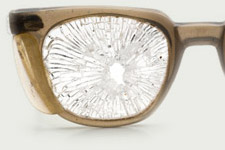
Tips for preventing eye problems and protecting your eyesight
Posted in General Health & Wellness on July 3, 2011. Last modified on March 28, 2019. Read disclaimer.
You're probably aware that eating carrots is good for our eyes and that
sitting too close to the television can make children nearsighted, but most of us know very little more than that when if comes to caring for our vision. (Actually both of those long-held "truths" are largely myths. While carrots are rich in beta-carotene, which is beneficial for eye health, so are many other foods. And, while it is true that television sets prior to 1968 emitted x-rays, children naturally focus well on objects that are near -- so they tend to sit close to a tv screen or hold books close to their eyes. There are no known hazards associated with this.)
+ Free Shipping & Returns on Eligible Items.
(*Amazon's Top 100 list updated hourly.)
Fortunately, the American Optometric Association, the American Academy of Ophthalmology and numerous state and federal health agencies provide have come up with more well-founded suggestions for protecting our vision:
1) Wear protective eyewear when appropriate.
A leading cause of blindness is eye injuries that occur while working in or around the house, at work or while playing sports. And 90% of these injuries can be prevented with the use of appropriate and properly-fitted protective eyewear.
These injuries can be categorized as:
- Flying projectiles (these can be dust, smoke, wood or metal particles at work; balls, bats or fingers in sports; grit we encounter in the air when we are on a motor cycle, speed boat or racing bike; fireworks; or even things as seemingly innocent as playing with a kitten or opening a champagne bottle)
- Burns (spilled soup, splashed hot drink, being exposed to steam from a hot iron, a splattered of hot grease)
- Chemicals (splash or fumes from pesticides, battery or factory acids, alcohol, oven cleaner, bleach)
- Bloodborne pathogens (blood or body fluids)
Exercising caution and wearing appropriate proper protective glasses, goggles, face shield or other safety eyewear for any activity are a must! Regular glasses or contact lenses do not provide adequate protection and may even shatter when impacted, cutting the eye. And don't forget that bystanders can be at equal risk.
If you get a small object in your eye, avoid rubbing or applying pressure. You may gently rinse the eye with lukewarm water using an eye dropper but do not touch the eye ball itself with tweezers, cotton swabs, etc.
If an object is embedded in the eye, do NOT attempt to remove it or attempt to flush it out. Bandage both eyes to minimize eye movement and seek immediate medical attention.
If chemicals get in the eye, immediately flush with gently flowing, cool (80-90F) tap water, turning the person's head so that the affected eye is down and to the side. Hold the eye lid wide open and flush eye continuously for a minimum of 15 minutes (some experts feel that an uninterupted 20-30 minutes is preferred). If both eyes or face were impacted, have person take a shower. If contact lense(s) did not come out at this point, remove lense(s) AFTER the rinse flush. Continue flushing with water or saline while seeking medical attention.
2) Wear UV protective sunglasses and a hat when exposed to sunlight - any time of the year.
Long-term exposure to ultraviolet (UV) radiation increases a person's chances of developing cataracts, macular degeneration and retina damage. In addition, some prescription and over the counter drugs may increase a person's sensitivity to UV rays. And UV rays in winter which reflect off ice and snow can be as damaging as exposure to summer sun at the beach.
Wrap around frames provide a higher level of UV protection.
3) What you eat matters.
The risk of developing age related macular degeneration, cataracts, visual acuity loss and other chronic eye diseases may be lower (by as much as 25%) in people who eat a healthy diet or take nutritional supplements that include:
- Lutein with Zeaxanthin (found in spinach, collards, kale and other dark leafy green vegetables, eggs, corn, lutein supplements)
- Vitamin C (antioxidant found in oranges, strawberries and many other fruits and vegetables, Vitamin C supplements)
- Vitamin D (exposure to natural sunlight, Vitamin D fortified foods)
- Vitamin E (antioxidant found in nuts, fortified cereals, sweet potatoes, Vitamin E supplements)
- DHA/EPA Essential Fatty Acids (fatty fish, fish oil supplements)
- Zinc (red meat, poultry, nuts, beans, milk, nutritional supplements)
Since our bodies do not manufacturer many of these nutrients, is is essential that we get them through diet or nutritional supplements.
Also, limit or avoid consumption of saturated fats (common in meat, fatty dairy products).
While a diet that is rich in antioxidants may be protective against plaque buildup in blood vessels, a diet high in saturated fats does just the opposite -- it can promote formation of blood vessels plaque, which may restrict blood flow to the eyes.
4) Don't smoke.
According to Robert Sperduto, M.D., chief, epidemiology branch of the National Eye Institute. "If there's one thing people can do to improve their general health, including the health of their eyes, it is to stop smoking." Smoking restricts and thickens blood vessels, including those supplying blood to the eyes.
Vision Facts
- Over 21 million Americans (more than 10% of adults) are blind or have difficulty seeing -- even with corrective lenses.
- 80% of all cases of blindness are preventable or curable.
- 90% of the world's blind live in a developing country.
5) Watch your weight.
Obesity significantly increases a persons risk for age-related macular degeneration, diabetic retinopathy, cataracts and glaucoma.
6) Control health conditions such as diabetes (type 1 or 2) and high blood pressure.
These and other diseases can result in serious damage to your eyes.
7) Get regular eye exams.
In their early stages, most vision-related diseases show no warning signs so it is better to detect and address eye problems early, before they result in vision loss or blindness. Discuss your age, health, family history and other risk factors with your eye care provider when determining how frequently you should get an eye examination.
8) Exercise.
Exercise improves blood circulation throughout the body and is important to eye health.
9) Practice good contact lense hygeine.
Prolonged wearing of contacts can lead to eye damage. Remove and clean contact lenses daily.
Some age-related vision changes such as our ability to focus, distinguish colors or requiring more light when reading are normal and largely unavoidable. Vision loss, however, due to age-related macular degeneration, cataract, glaucoma, diabetic retinopathy or other diseases is not normal. Following the steps mentioned above may help you enjoy optimal vision throughout your lifetime.
Additional reading on protecting your eyesight is available at:
http://www.aoa.org/x4724.xml
http:/www.ncbi.nlm.nih.gov/pmc/articles/PMC1705682/
http://www.geteyesmart.org/eyesmart/living/preventing-eye-injuries.cfm
http://health.mo.gov/living/families/ruralhealth/pdf/spring12.pdf
http://www.nlm.nih.gov/medlineplus/ency/article/000054.htm
http://www.tdi.texas.gov/pubs/videoresource/wpeyewashsafet.pdf
http://www.tdi.texas.gov/pubs/videoresource/stpeyeprot.pdf
http://here.doh.wa.gov/materials/how-to-respond-injury-and-illness-at-school/12_InjuryIllness_E10L.pdf

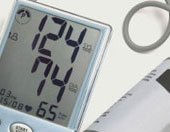 High blood pressure risk factors
High blood pressure risk factors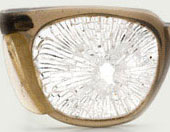 Protecting your eyes and eyesight
Protecting your eyes and eyesight Living safely with house pets
Living safely with house pets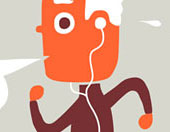 Natural body detox through exercise
Natural body detox through exercise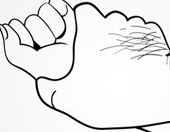 Domestic violence assistance
Domestic violence assistance Important role of grandparents
Important role of grandparents Concerns and risks of Vitamin D deficiency
Concerns and risks of Vitamin D deficiency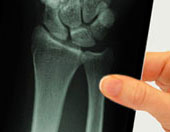 What is carpal tunnel syndrome?
What is carpal tunnel syndrome? Poison oak, ivy and sumac rash prevention
Poison oak, ivy and sumac rash prevention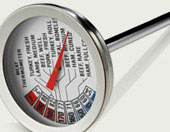 Safety tips for preventing food poisoning
Safety tips for preventing food poisoning